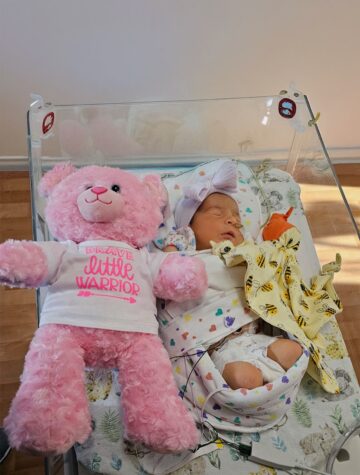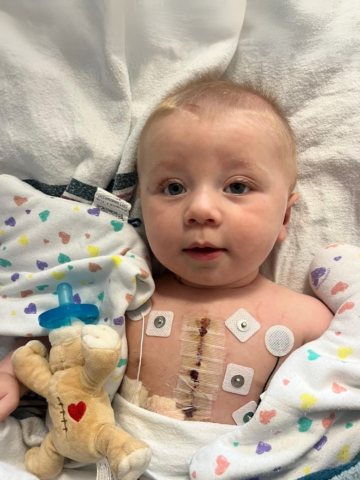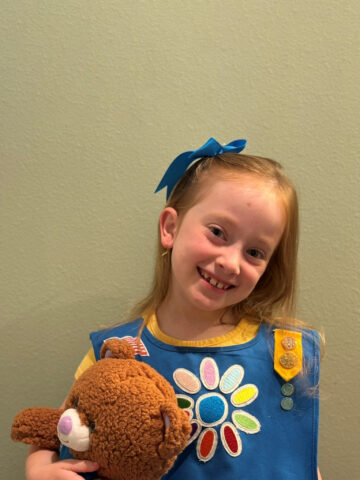When Megan and Levi Heacock found out they were expecting twin boys, they were overcome with joy.
“You come in, planning for a baby, then, come find out it is babies, plural; It was a beautiful surprise,” as Megan recalls, alongside a perfectly healthy, normal pregnancy.
However, in the middle of the night after just barely reaching 22 weeks and 6 days, Megan was unexpectedly rushed to her local hospital. There, she and Levi learned that she had a placental abruption; their boys needed to be delivered that day.
After Megan’s emergent delivery, the boys were immediately transported to the top-rated Level 4 Neonatal Intensive Care Unit (NICU) at CHOC, home to the Small Baby Unit, which is designed to care for the smallest and sickest babies. Dr. Robert Hillyard, neonatologist and regional director for the neonatal division at CHOC, received a call from the NICU around 2 a.m. that the twins were coming, and their parents wanted to go ahead with care.
For the next 165 days, this would be a place to call home for the Heacock Family.
‘It’s almost best to know nothing,’ survival rates rare for babies born at less than 23 weeks gestation
Within their first couple weeks of life, Henry and Hugo faced several life-threatening challenges. Henry developed a skin fungal infection, which a nurse detected early, allowing for successful treatment. Hugo suffered a spontaneous intestinal perforation that necessitated emergency surgery and stoma placement. Both boys required the placement of a Piccolo device, breathing assistance and a feeding tube.
As a current Obstetrics and Gynecology resident at the Cleveland Clinic, Megan’s occupation altered her perspective of the difficult road ahead.
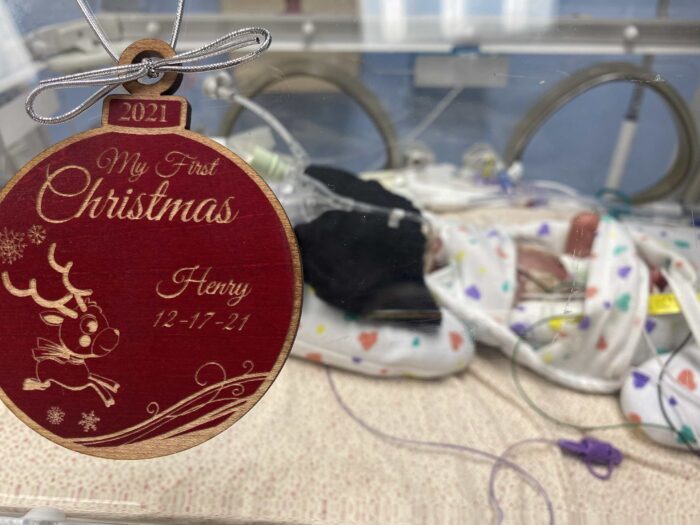
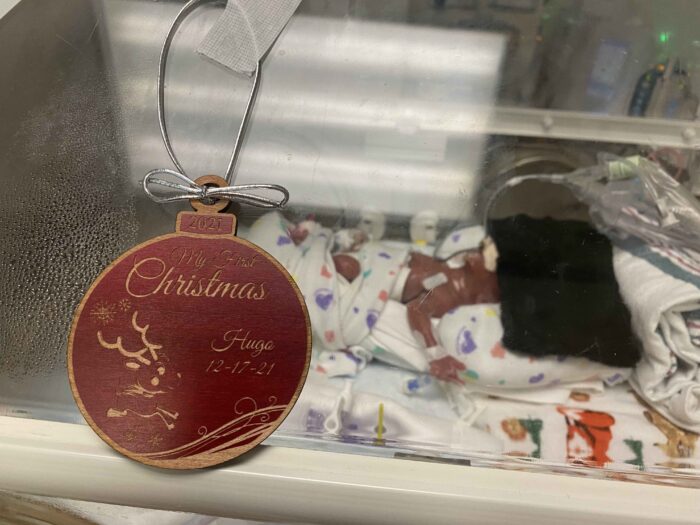
“It’s hard not to think of worst-case scenarios when you are aware of the worst,” Megan says. “The data shows us that the outcomes for Caucasian boys are far less promising than for girls. Not to mention, oftentimes, there are cut-offs for resuscitation for babies born under 24 weeks. Fortunately, our entire NICU team remained positive for us, despite the hurdles to come.”
Prior to Henry and Hugo’s story, medical intervention was incredibly uncommon for babies weighing under 1,000 grams, and survival rates for infants born less than 23 weeks’ gestation are rare. Further, to survive and live without major motor or cognitive deficits is almost unheard of.
Fortunately, CHOC’s NICU is up to the challenge.
“Even with the best equipment, facilities and team, we cannot make every baby born at that age survive,” Dr. Hillyard says. “There are very few delivery rooms across the country that are prepared to move forward on 22 weeks twins on a moment’s notice. That ability comes with an expert on-call team 24/7. Our outstanding care patterns, technology and teamwork allowed me to look their parents in the eye and say, ‘It’s not a bridge too far. We aren’t causing harm by moving forward. Let’s see where the babies take us.’”
With You, CHOC is there for kids like Henry and Hugo. Every day, patients and their families turn to CHOC for compassionate and innovative care made possible through donor generosity. We couldn’t do this important, lifesaving work without your help.
Keeping calm, and counting down the days in CHOC’s NICU
Months passed, and Megan and Levi watched many families come and go from the NICU with their healthy babies in hand.
“As thrilled as we were for everyone in our pod to leave and go home,” Megan says, “It was just as hard for us, especially when the boys were not doing well, or when something critical would happen.”
Even on the most difficult days, Megan and Levi knew that the time they got to spend with their boys was precious.
“We realized that while we wanted to be there all the time, we knew we had to take breaks for ourselves and lean on one another for support,” says Levi. “As much as we valued being there for the boys, and wanted to be as present as possible, we knew it was just as important to take care of ourselves and show ourselves compassion and grace.”
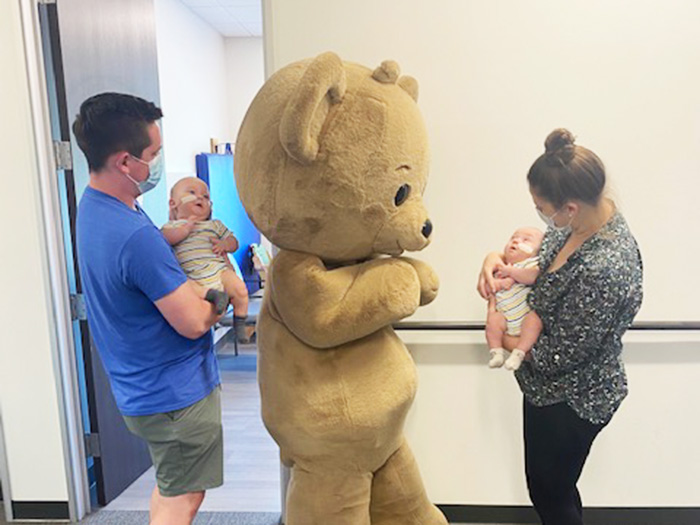
All the while, the Heacocks’ consistent presence in the NICU gave other families the courage and hope they needed to take it one day at a time.
“[A father] who was close to us in our room was very anxious about holding his new baby,” Levi recalls. “As he watched and learned from [us], he was able to overcome his anxiety and hold his baby for the first time.”
The CHOC NICU team knows the stakes are high and they are constantly working with families to ensure that all their needs are met. No matter the outcome for the baby, Dr. Hillyard says, it’s essential that parents have the tools they need to survive their time in the NICU emotionally, financially and with their family intact.
“We can create the circumstances for success, but we don’t control the outcome,” Dr. Hillyard says. “But we can absolutely offer a trusting relationship with the parents. Regardless of the outcome, that bond creates something you can live with.”
Discharged and thriving, twins meeting developmental milestones
After nearly 24 weeks in the NICU, Henry and Hugo were finally able to go home. They were discharged with supplemental oxygen and tube feeding, with plan to wean them off both. Even at discharge, though, Henry and Hugo were smiling and making eye contact with their caregivers, signs of excellent early social and motor skill development.
At 8 months (corrected), both boys are “happy as can be,” and are showing off their incredible personalities more and more each day. Both boys have been off of supplemental oxygen for about 6 months and recently discontinued their nasogastric feeding tubes (they actually pulled them out themselves around Christmas time) and are now eating full feeds on their own.

“Henry is efficient, not lazy,” as Levi describes him, “He loves to talk to himself for five to 10 minutes at a time. If he’s not talking, he’s sleeping, and if he’s not sleeping, he wants to snuggle.”
“Hugo, on the other hand, is observant, and always has been since his NICU days,” Megan says. “He loves laughing, rolling around and being involved in everything around him.”
Henry and Hugo are surpassing all milestones; they are even ahead of schedule in some areas.
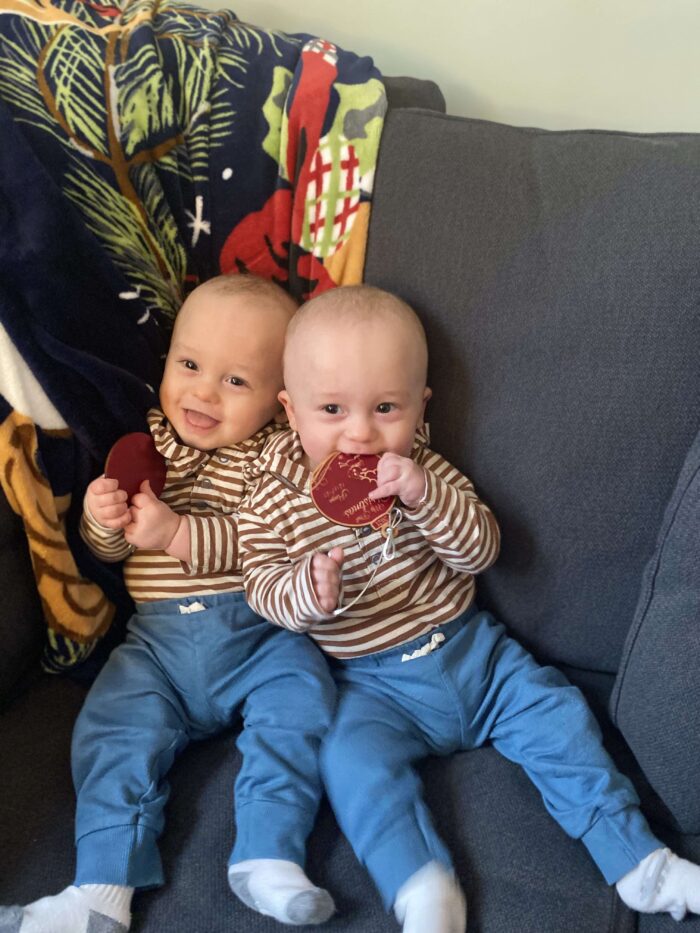
“We were lucky to have so many people who took such good care of our boys,” says Levi, “We would have team members from all over come down to check-in and ask ‘how are my boys?’”
Megan adds, “We’ve now seen how resilient these tiny fighters are and have an incredible appreciation for what is possible for premature infants. We cannot express our gratitude enough to the entire CHOC team.”
Get more expert health advice delivered to your inbox monthly by subscribing to the KidsHealth newsletter here.
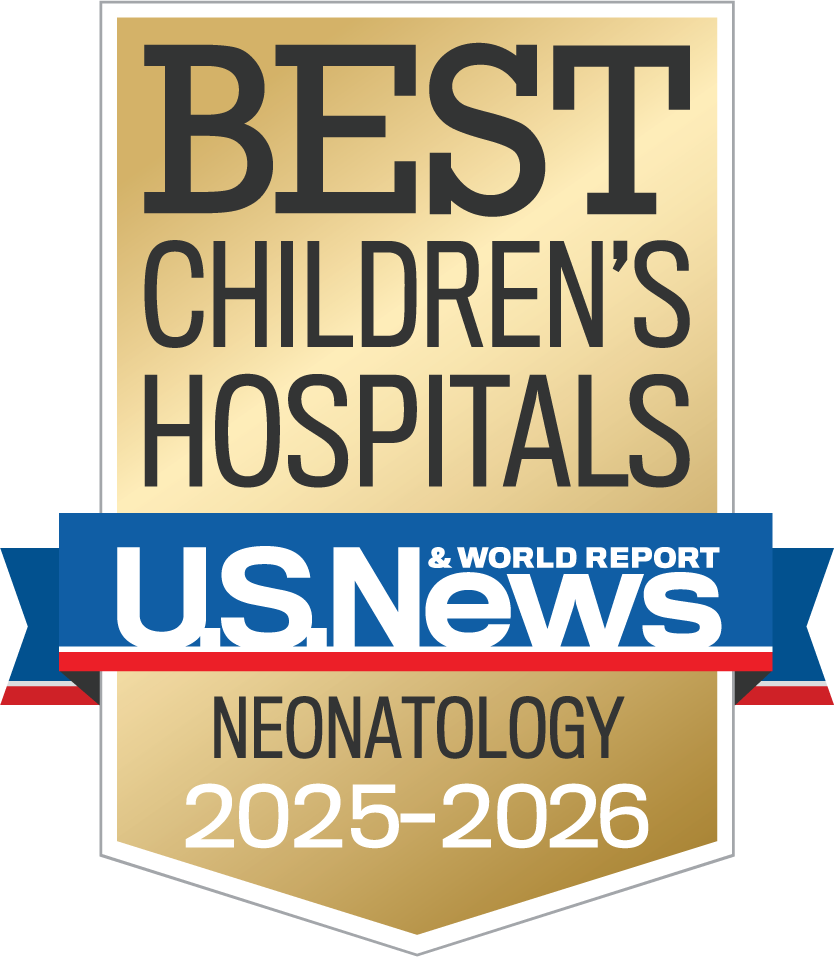
Learn more about CHOC’s Neonatology Services
CHOC Hospital was named one of the nation’s best children’s hospitals by U.S. News & World Report in its 2025-26 Best Children’s Hospitals rankings and ranked in the neonatology specialty.

